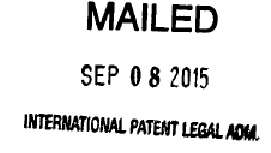I am indebted to Louis Ventre, Jr. for pointing out this delightful quotation from the US Supreme Court in 1892:
The specification and claims of a patent, particularly if the invention be at all complicated, constitute one of the most difficult legal instruments to draw with accuracy; and, in view of the fact that valuable inventions are often placed in the hands of inexperienced persons to prepare such specifications and claims, it is no matter of surprise that the latter frequently fail to describe with requisite certainty the exact invention of the patentee, and err either in claiming that which the patentee had not in fact invented, or in omitting some element which was a valuable or essential part of his actual invention.
Topliff v. Topliff, 145 U.S. 156, 12 S.Ct. 825, 36 L.Ed. 658.
Maybe it should be standard procedure to send a copy of this quotation to each client when they complain about the cost to get a patent application drafted.


